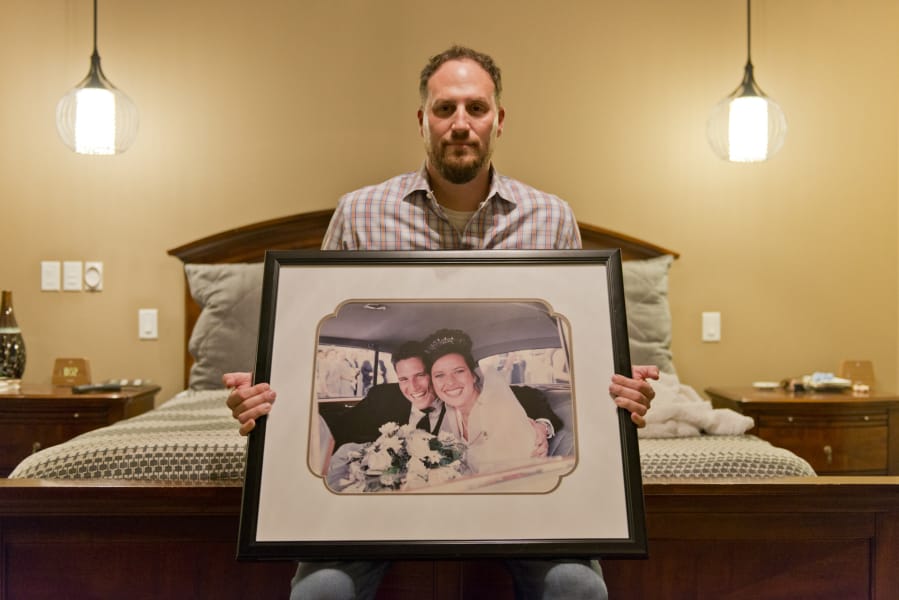Trudy Malsey was reaching the age when “everything starts falling apart,” as she joked.
To combat it, the 63-year-old Vancouver resident had a list of health checkups: a mammogram, a pap smear and a colonoscopy. Her mammogram led to more investigation and a diagnosis of breast cancer in January.
Malsey’s diagnosis was just the beginning of something far more complicated.
Malsey had a simple lumpectomy locally with Vancouver Clinic in July, but could not find a surgeon in Clark County or Portland to conduct her reconstruction, because her health insurance carrier, Molina, had low reimbursement rates. That’s a common problem, said Becky Price, a nurse navigator with Compass Oncology.
Instead of finding care locally, Malsey ended up choosing to have a mastectomy at Swedish Medical Center in Seattle in September, followed by reconstruction in October.
“The stress of knowing you have cancer and not being able to get treatment is beyond what anyone should have to deal with,” Malsey said.
That meant Malsey had to get a ride with her friend and former boss Wayne Vetter, a podiatrist in the Portland area, to Seattle. It also meant booking a hotel for the night before her mastectomy.
Malsey said her experience is just one of the financial hurdles patients can face. She dislocated a shoulder in Australia in April and paid $205 for emergency room care. Nine years prior, that same kind of dislocation cost her $5,000 for the same treatment in Bend, Ore. She thinks big changes are needed.
“How can that be?” Malsey asked. “There’s something wrong with our system. Somehow, we’re either going to have to raise taxes or do something, where medical care is accessible across the board. It has to be. You can’t treat people terribly because of what they have for insurance.”
‘It’s heartbreaking’
As a nurse navigator, Price witnesses early facial reactions people have to a cancer diagnosis. They’re slowly doing the math in their head.
“There’s this fear at the beginning of ‘I can’t do that, because I have to work.’ Or ‘I have to be able to pay my bills and if I take that many days off for surgery or chemo, I can’t afford my life,’ ” Price said.
That generally means patients who are in the toughest financial predicaments push themselves the hardest during treatment in an effort to pay bills and stay out of debt.
Maybe a patient who is well off financially will take a week off of work after chemotherapy, Price said, whereas low-income patients might only take a day off or no time off. That means low-income patients are more at risk for infections or complications, Price explained. She said patients who push themselves too hard can be run down by the end of treatment and “literally can’t work,” she said. That means they’ll lose the income they were chasing anyway and still end up in financial trouble.
“I feel like they’re choosing between their physical health and their financial health, especially those with families to support,” Price said. “It must be a truly difficult choice, and it’s hard to tell somebody there’s nothing I have to fix what they have going on. I have the resources they can try. Our social workers work tirelessly to help them find resources that may work for them, but there are people we can’t find appropriate resources for. It’s heartbreaking. We’ve seen people lose their homes. We’ve seen people get divorced through the process of this. It definitely takes a huge toll on the patients, and by extent the staff, feeling like they are helpless to stop this from happening.”
Growing resources
Price explained many grants or resources to help low income breast cancer patients often still don’t cover enough people because there are patients who either aren’t sick enough to qualify for those options or they aren’t poor enough. They fall in a middle ground, she said.
But more resources are emerging each year. This summer, Pink Lemonade started the Pink Practicalities, which helps patients who qualify pay for things such as transportation, lymphedema sleeves, wigs, groceries and more, said Pink Lemonade Executive Director Meaghann Ande.
“The thing I’m realizing is that there are more gaps than we realized,” Ande said.
PeaceHealth started the Jaime Wyatt Miller Cancer Compassion Endowed Fund, named after Jaime Miller, a Vancouver mother of two who died in 2018 of complications from triple-negative breast cancer at age 42.
That endowment has a goal of raising $1 million. The fund already sits near $500,000, and there is a gala being held for the fund Oct. 19 at the Hilton Vancouver Washington. Karen Santangelo, the chief development officer with PeaceHealth Southwest Medical Center Foundation, and Sherry McCarthy, a foundation relations specialist, said the fund is being tapped to help people pay for bills, rent, groceries, transportation and more.
“This endowment is a way to meet the need in these bigger ways, in a systematic approach,” Santangelo said.
Price said it’s these local resources and efforts that give her hope that gains can be made for low-income patients.
“It’s not that people aren’t trying. It’s just that the problem is so big,” Price said. “It doesn’t happen overnight and it doesn’t happen without really fighting for equal benefits for people who have lower incomes.”




